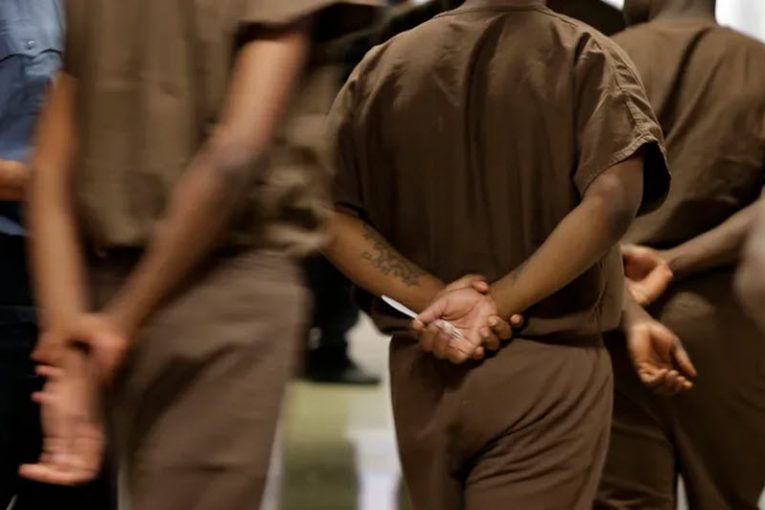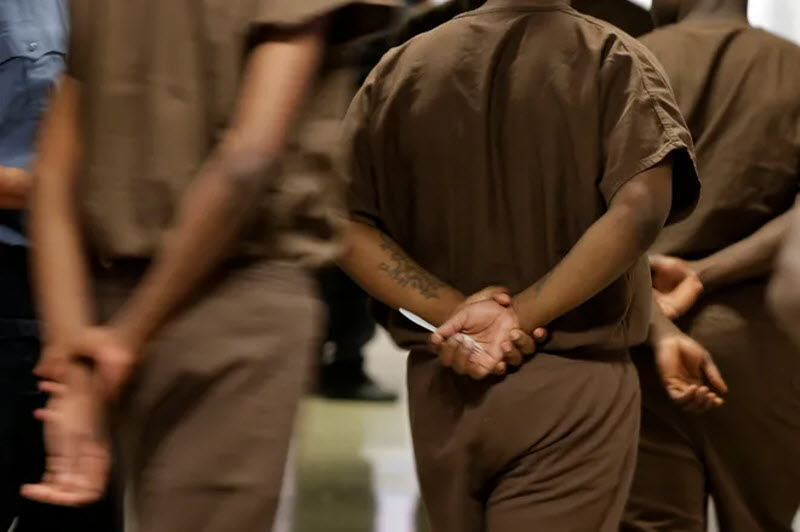

By Loren Khogali and Mary Ann Scali
Imagine being charged with a crime and going to court without an attorney or one qualified to defend you. Now, imagine being a child in those circumstances. Sadly, thousands of Michigan children across the state don’t have to use their imaginations.
The U.S. Constitution requires the state to provide legal representation to everyone facing incarceration.
But in this state, children regularly face prosecution without a competent lawyer—or any lawyer at all.
For indigent adults facing criminal charges, the state funds legal representation. It even requires that appointed attorneys are trained, qualified and have an adequate budget to hire investigators and expert witnesses.
Lawyers who represent children in the juvenile delinquency system don’t get any of that —not the funding, and not the training.
The results have been devastating. Children as young as 11 have gone before judges without defense counsel, and faced significant consequences, including incarceration, that have an enduring impact on them, their families and their communities.
Fortunately, there is a solution within reach.
Lawmakers must pass HB 4630
When state lawmakers return to Lansing in January, they can—and must—pass House Bill 4630, authorizing the Michigan Indigent Defense Commission to fund legal representation of youth facing prosecution, and develop training and standards that ensure they receive the same quality legal counsel as adults.
In fact, the Legislature came very close to passing HB 4630 in November, but it was left out of a 20-bill package that makes sweeping reforms to the juvenile legal system, signed into law Tuesday by Lt. Gov. Garlin Gilchrist II.
We applaud the Legislature for passing these crucial bills, but their work is not done. Lawmakers must move HB 4630 across the finish line.
Most vulnerable, least representation
Last year, the Michigan Task Force on Juvenile Justice Reform issued a report that included more than 30 recommendations to address Michigan’s troubled juvenile legal system. Created by Gov. Gretchen Whitmer and led by Gilchrist, the task force examined five years of data, covering more than half of the state youth population (ages 10 to 16), and conducted a comprehensive review of juvenile laws, court rules, and policies; and conducted 100 focus groups and interviews across the state.
Among the task force’s unanimously supported recommendations was the expansion of MIDC to include “development, oversight, and compliance with youth defense standards in local county defense systems.” In other words, the task force recommended that the MIDC, which currently funds these services for adults facing criminal prosecution, be expanded to include the same funded services for children.
This is the same recommendation, among many, that the Gault Center made in its report, Overdue for Justice: An Assessment of Access to and Quality of Juvenile Defense Counsel in Michigan. After the Gault Center’s 20-member research team spent a year focused on 10 Michigan county court systems—conducting 162 interviews, observing 121 court proceedings and reviewing thousands of court records—it concluded, “Juvenile defense practice in Michigan is not subject to any state standards, receives no state funding, and has no consistent, effective monitoring or enforcement mechanism in place to ensure youth receive effective counsel at all critical stages.”
The Gault Center report also found that Michigan children waive their right to legal counsel without being advised as to what this means. The report describes an 11-year-old child with disabilities who decided to proceed with their case without an attorney. They entered into a court agreement without being advised of their rights, without meaningful advisement of the charges against them, or the consequences of proceeding without a lawyer.
The task force report found, unsurprisingly, that Black children are disproportionately represented in every aspect of the juvenile legal system, including going before a judge twice as often as white children and being placed in detention six times more often, despite similar charges. These outcomes would likely be much different if children had access to quality legal representation.
That is what is at stake, and why our lawmakers must pass HB 4630. Along with funding quality legal representation, this vital legislation would expand the MIDC to mandate that state-level defense standards are developed, and oversight is provided to ensure local compliance with those standards.
Ironically, among the 19 bills enacted was one that expands the State Appellate Defender Office to provide young people with quality appellate representation. It stands to reason that children must have competent legal representation from the start, thereby lessening the likelihood that they will need to seek an appeal.
It shouldn’t take a lawsuit
The state Legislature has made great strides in addressing the failings of our juvenile legal system. Without HB 4630, children will continue to suffer from substandard legal defense that not only violates their due process rights but also impacts the trajectory of their lives.
The ACLU of Michigan sued the state to ensure indigent adults have quality legal representation. It worked. But it shouldn’t take another lawsuit to ensure that Michigan also provides this for children, who are entitled to the same constitutional protections, at a minimum, as adults.
This op-ed was originally published in the Detroit Free Press
Mary Ann Scali is executive director of The Gault Center. Loren Khogali is the executive director of the American Civil Liberties Union (ACLU) of Michigan.
